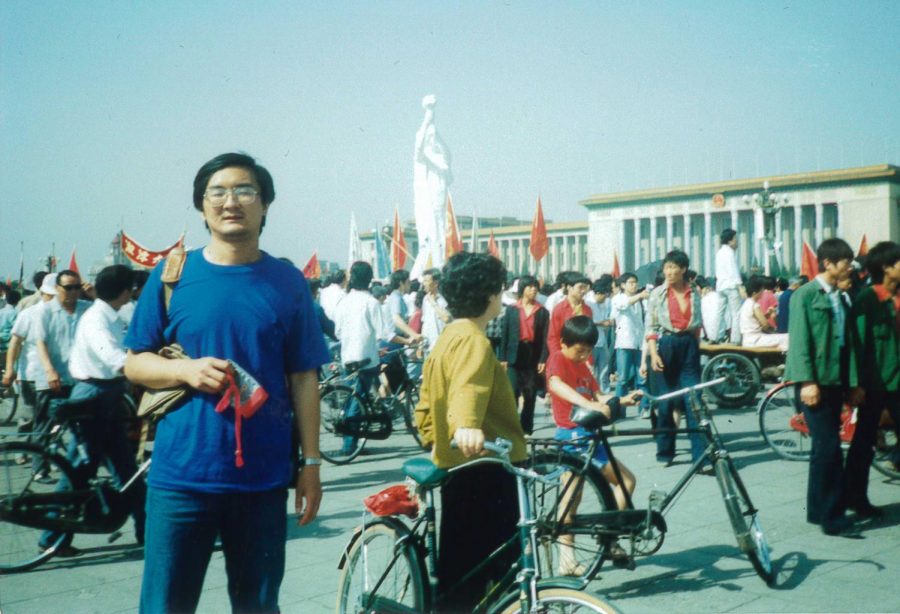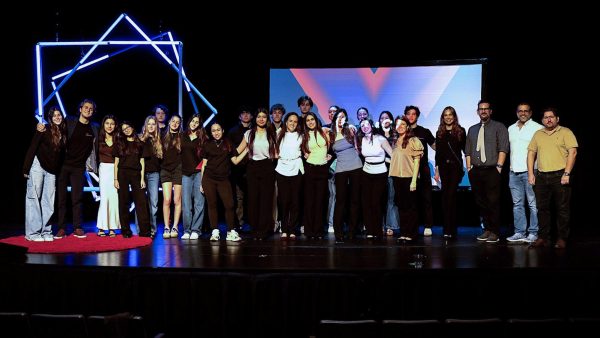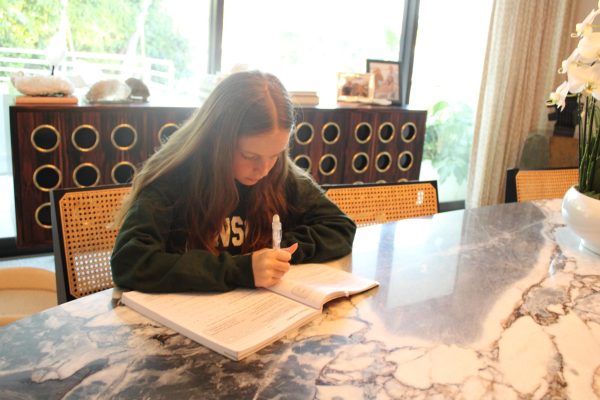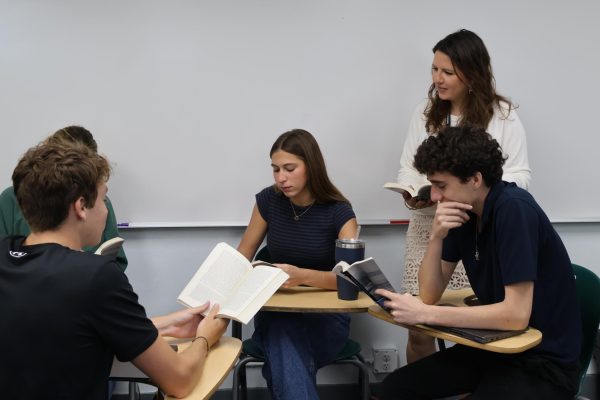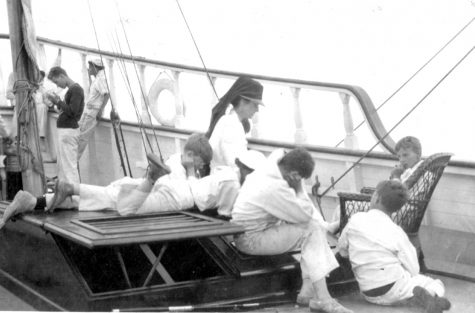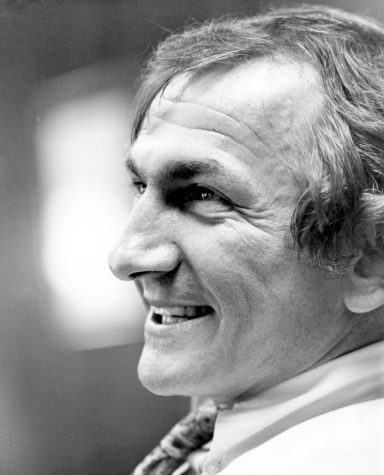From Tiananmen to Miami
Through oppression and hardship, Mr. Youming Che persevered in his ongoing quest to build cross-cultural understanding
Mr. Che joins protesters in Tiananmen Square in 1989. The Statue of Democracy in the background — brought into the square by protesters — was destroyed by tanks two days later.
“When I first came here [in 2008], I had 5-6 students from the Middle School, and I started a Chinese 1 class with maybe 12 students. Today, we have a little bit over 100 students in the program.”
Since his beginnings in Beijing, China, Mr. Youming Che, who started the RE Chinese program, has fought to create a better future for himself and those around him. From the Cultural Revolution to Tiananmen Square to life in America, Mr. Che has never allowed challenges to halt his determined movement forward.
When he was young, Chairman Mao’s Cultural Revolution disrupted Che’s childhood. Mao’s anti-intellectual policies forced Mr. Che and his parents, who were both professors, out of Beijing and into a labor camp in Jiangxi Province for four years.
“My whole family was sent to the labor camp . . . where I spent all of my teenage years,” he said. “It was a very different time.”
Despite his circumstances, Mr. Che found and capitalized on what he saw as his only glimmer of hope: learning the English language.
“As a high school student, I spent most of my time totally devoted to my [English] studies, because I knew I could use it someday as a tool to leave,” he said.
Mr. Che then attended a prestigious university in Beijing before traveling to the United States for graduate school at East Tennessee State University. After earning his degree in the U.S., Che returned to China, where he hoped to begin his career in education, starting as a college professor.
At this point, Che’s story took a darker turn.
As a college professor in Beijing in 1989, Mr. Che became involved with student protests against the Chinese government. He continued to participate in protests in Beijing, and would soon be present at an event that became synonymous with a massacre — the Tiananmen Square incident of 1989, in which the Chinese government deployed its military to fire upon student protestors.
Che left the country permanently in 1991 because of his involvement in these protests and said the brutal incident reshaped his perception of China forever.
“Tiananmen protests affected my life, affected my family,” he said. “It changed many things, including the way the rest of the world views China.”
Throughout his professional life in the United States, Mr. Che taught Chinese in Chicago and pursued a brief career in business before he returned to teaching.
Motivated to return to teaching by a belief that “our nation needed young people to be better prepared to handle the coming run of competition with China,” Mr. Che was hired at Ransom Everglades in 2008, where he built RE’s Upper School Chinese program from a handful of students into a thriving program today, in which over 100 students study Chinese and seniors take the AP exam every year.
Ms. Karen Thompson, a world languages teacher who was present during the introduction of the Chinese program, mentioned previous Head of School Ms. Ellen Moceri’s role in the creation of the program. Ms. Moceri, she said, “felt our [RE] students would be better served having Chinese available to them.”
RE then transitioned from a three-language curriculum of Spanish, French, and Latin to Spanish, French, and Chinese.
Ms. Thompson also praised Mr. Che’s success. “I think he did a great job getting the program going and I hope that a lot of kids, once they meet the Spanish language requirement, will choose Chinese as their third language,” she said.
Now, Mr. Che has continuously sought ways to diversify and grow the program, saying he looks for new teaching material every year. Still, he credited the growth of the program to a “joint effort” between himself and the students, and praised his students’ dedication and drive to succeed.
In the classroom, Mr. Che ensures his students are challenged, designing countless interactive activities that force students to engage with the language.
Grant Dill ’19 noted Mr. Che’s focus on using culture as a tool to learn, saying that Mr. Che “also gives us insights into the culture and history of China, something that is crucial to being a well-rounded Chinese student.”
Harrison Denman ’19 added, “Mr. Che makes classes fun and interesting by incorporating activities like listening and writing down the answers to questions in Chinese, and memorizing speeches.”
Mr. Che said he feels there is still a long way to go for students in the United States to fully understand China, and he dedicates himself to facilitating more of that understanding and fostering growth in his students.
“That’s my biggest dream, actually — that long after I’m gone, my students who started here can use their knowledge to pursue careers where they will become successful,” he said.
China’s meteoric rise during the 21st century has captured the attention of much of the international community. China’s GDP is projected to surpass that of the United States in 2023, and it has established spheres of influence across the globe. Mr. Che said he believes China will only become more important as time goes on and urged students to continue to learn about China.
“Only through comparison can we reach a better understanding,” he said. “This learning needs to be three-dimensional — students need to visit China, read about China, and more.”
After having overcome a significant number of challenges throughout his life, Mr. Che has his eyes set on addressing the challenge of U.S.-China relations — a partnership in which, he says, mutual understanding and interdependence will be crucial.
“You do not need to like the subject, but you need to understand the subject,” he said. “When you start to understand the topic, making change becomes possible.”


